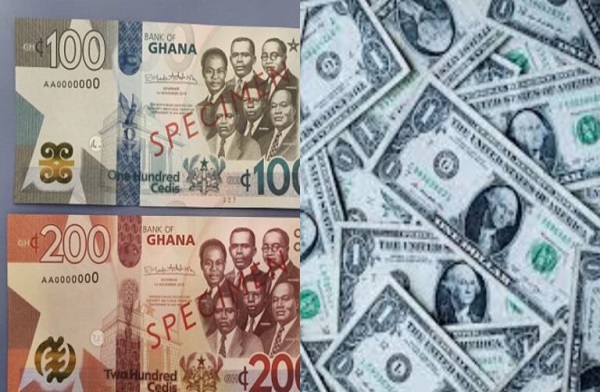
Audio By Carbonatix
Professor Godfred Bokpin, an economist and finance expert, has attributed part of the cedi’s depreciation to the International Monetary Fund’s (IMF) programme with Ghana.
He said that under the IMF programme, the Central Bank was barred from intervening in the currency exchange market when the Cedi fell against major trading currencies.
That situation prevented the Bank of Ghana (BoG) from entering the foreign currency market to stabilise the Cedi.
Prof. Bokpin commented on a local radio station that was monitored by the Ghana News Agency (GNA) over the weekend.
“Part of the reason why the cedi is depreciating is also consistent with the latest IMF-supported program. Under the IMF-supported programme, they favour a stable exchange rate.
“This limits the ability of the central bank to be in the market and fight off the depreciation through our reserves.
“Part of the IMF programme is to build our reserve of three months of import cover for 2026…What that means is that it tightens the hands of the central bank to intervene in the market to sell dollars to stabilise the cedi.
“Now they cannot do that under an IMF programme,” he said.
In May 2023, the IMF Executive Board approved a US$3 billion External Credit Facility (ECF) with Ghana for 36 months.
Prof. Bokpin also identified other factors that have influenced the cedi’s recent depreciation.
He said that the cedi’s depreciation was also triggered by the delayed foreign debt restructuring, which affected the receipt of the third tranche of the ECF under the IMF programme.
The IMF has indicated that it would transfer the third tranche of $360 million, notwithstanding Ghana’s inability to negotiate a final debt agreement with its official bilateral creditors.
Mr. Charles Kusi Appiah Kubi, a representative of the Ghana Union of Traders Association (GUTA) and a panellist on the discussion, suggested the prioritisation of retention policies to stabilise the cedi since multinational companies would be barred from repatriating profits.
Dr. Kwabena Nyarko Otoo, Director of Research for the Trade Union Congress, also encouraged the Central Bank to address the “open” trade of foreign exchange in Ghana, particularly the black market, to relieve pressure on the cedi.
Latest Stories
-
Some OMCs reduce fuel prices; petrol going for GH¢10.86, diesel GH¢11.96
31 minutes -
Trump says health is ‘perfect’ amid ageing concerns
54 minutes -
China’s BYD set to overtake Tesla as world’s top EV seller
57 minutes -
Joy FM’s iconic 90’s Jam returns tonight: Bigger, better, and packed with nostalgia
2 hours -
Uproar as UG fees skyrocket by over 25% for 2025/2026 academic year
3 hours -
Japan PM joins fight for more female toilets in parliament
4 hours -
Ga Mantse declares war on fishing industry child labour
4 hours -
Adom FM’s ‘Strictly Highlife’ lights up La Palm with rhythm and nostalgia in unforgettable experience
5 hours -
OMCs slash fuel prices as cedi gains
6 hours -
Around 40 dead in Swiss ski resort bar fire, police say
7 hours -
AFCON 2025: Aubameyang and Nsue make history among oldest goalscorers
8 hours -
AFCON 2025: How Kwesi Appiah’s Sudan qualified for round of 16 without scoring any goal
9 hours -
Ghana is rising again – Mahama declares
9 hours -
Firefighters subdue blaze at Accra’s Tudu, officials warn of busy fire season ahead
10 hours -
Luv FM’s Family Party In The Park ends in grand style at Rattray park
10 hours

